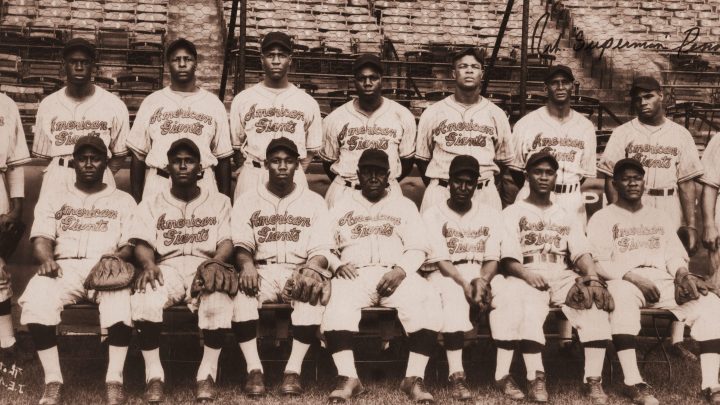
How baseball’s Negro Leagues became successful business enterprises
How baseball’s Negro Leagues became successful business enterprises

This month, we’re watching “The League,” which is available to stream on Hulu, with a subscription. You can also rent or buy the film on several platforms.
For April, with baseball season back, “Marketplace Morning Report” is tuning into the 2023 documentary “The League” for its Econ Extra Credit project. “The League” chronicles the history of baseball’s Negro Leagues, established several decades before the sport was integrated. These leagues found remarkable economic success and launched the careers of some of the best players baseball’s ever seen.
Larry Lester is co-founder of the Negro Leagues Baseball Museum in Kansas City, Missouri and one of the experts featured in the documentary. He spoke with “Marketplace Morning Report” host David Brancaccio and the following is an edited transcript of their conversation.
David Brancaccio: So these Black teams are coming together in the late 19th century, early part of the last century. But let’s fast forward to 1920. And people need to know the name of Rube Foster — Andrew “Rube” Foster. Tremendously talented baseball player himself, but this is a businessman, isn’t it?
Larry Lester: Most definitely. We think of Rube Foster as the godfather of Negro League baseball. He was the innovator and the creator of the Negro National League, the first Black league to survive a full season. And so we had our own league. And that was the essence Rube Foster and his model: “We are the ship and all else the sea.” It was sailing against the tide of oppression and rejection from white America.
Brancaccio: And these leagues were enormously influential, obviously, in baseball, but much more than baseball. Other industries, other parts of society drew energy from what was happening in baseball.
Lester: What we find is, as we become more independent as entrepreneurs, we got Madam C. J. Walker and Annie Malone starting hair care products for Black women. Back during that period, a Black person could not buy insurance. So you’d have entrepreneurs like A.G. Gaston out of Birmingham, who would sell an insurance policy for nickel a week to Black Americans. And so we had to feed ourselves, become independent. So it was great. Haberdashers, barber shops, [night clubs] were owned by Black people at the time.
Brancaccio: So we come out of the Second World War, and the first Black player to play in the Major Leagues in that era is, of course, Jackie Robinson, who comes from Kansas City. But that gets us to the central irony of watching “The League,” right? The fight for civil rights, the fight against segregation spells the end for a treasured resource, the Negro Leagues.
Lester: Yes, the ultimate victory of success decided to be the ultimate demise of Black baseball and many black businesses — much like the big-box stores coming to town and the small businesses go out of business. Major League Baseball hijacked the Negro League fans and rightfully so. We wanted to see how Black players will perform on the big stage, just like we enjoy the Olympics. We want to see if we are the best in the world, not just in our neighborhood.
There’s a lot happening in the world. Through it all, Marketplace is here for you.
You rely on Marketplace to break down the world’s events and tell you how it affects you in a fact-based, approachable way. We rely on your financial support to keep making that possible.
Your donation today powers the independent journalism that you rely on. For just $5/month, you can help sustain Marketplace so we can keep reporting on the things that matter to you.











